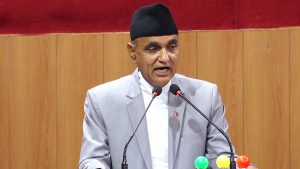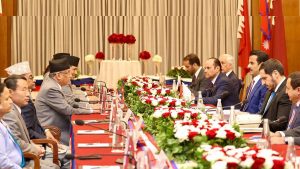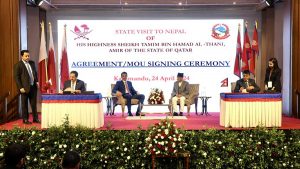
Writ filed in SC demanding to reject a contract for the sixth package of expressway awarded to the Chinese company
A writ has been registered in the Supreme Court saying that the Nepali Army provided the contract for the sixth package of the Kathmandu-Terai-Madhesh expressway to the Chinese contractor company whose technical proposal was rejected .
After the China First Highway Engineering Company, which was not among the companies selected by the Nepal Army when the global tender was called for the sixth package, got the contract for the Kathmandu-Tarai-Madhesh Expressway, a writ petition was registered against it.
On Thursday, advocate Sujan Rizal filed a writ on behalf of Afcons Infrastructure Limited of India, which had joined the contract process. In the writ, it is demanded to cancel the contract awarded to the Chinese contractor company.
The writ registered on Thursday is being heard today (Sunday) in the single bench of the court judge Hari Phuyal.

Earlier, For the sixth package of the Kathmandu-Terai-Madhesh expressway, the Army had submitted proposals calling for tender on June 1. 12 companies had called for tenders on that proposals.
The Nepal Army had passed the technical proposal of twelve companies whereas rejected seven companies. China First Highway Engineering Company was among the one whose technical proposal was rejected.
China First Highway Engineering Company filed a complaint with the Public Procurement Monitoring Office saying that its technical proposal was rejected.
After the company appealed to the Public Procurement Monitoring Office, the office sent instructions to the army to include him in the tender process.
Army on November 6 at 5 pm sent a letter to the companies regarding financial proposal opening.
The next day at 1 o’clock in the email sent by the army to the rest of the companies, it was informed that the same Chinese company, China First Highway Engineering Company, had been selected, which had given an appeal to Public Procurement Monitoring Office. The company was provided a Letter of Intent (LOI).
So the Indian company went to the Supreme Court saying that the army’s decision was not in accordance with the law.















Comments